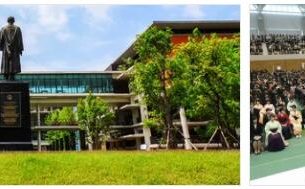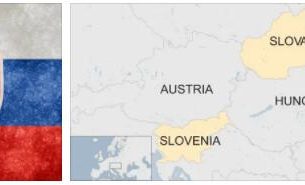In November 2008 the State Duma passed two important constitutional amendments: the term of office of the president was increased from 4 to 6 years and the legislative period of the State Duma was extended from 4 to 5 years. In order to contain the effects of the international financial market crisis, in autumn 2008 the Russian government provided banks with loans worth the equivalent of 27 billion euros with a term of at least 5 years to strengthen their equity base. The hopes associated with Medvedev for a loosening of the authoritarian-centralist course or an improvement in the rule of law culture were not fulfilled. Evidence for this was provided in 2010 by the renewed conviction of the former owner of the Yukos oil company, Mikhail Khodorkovsky, to a long sentence. Many observers suspected that there was a political background to the process. Domestically, the terrorism problem associated with the unsolved Chechnya conflict remained virulent. In 2011, 37 people were killed in a suicide attack on Moscow’s Domodedovo airport, which Chechen rebel leader Doku Umarov claimed to have committed.
In the Duma elections on February 4, 2011, “United Russia” suffered a sharp drop in votes and, according to the electoral commission, achieved 49.3% of the vote and 238 seats. Election observers criticized massive manipulations in favor of the ruling party. According to official information from the electoral commission, Putin won the presidential elections on March 4th, 2012, which were accompanied by numerous irregularities, with around 63.6% of the vote in the first ballot. On May 7th, 2012 he was sworn in in the presidency. The OSCE described the elections as unfair. On 8 May 2012 the Duma elected Medvedev as head of government. He joined the United Russia party on May 22, 2012 and took over its chairmanship on May 26, 2012. Putin signed on June 8, 2012a law restricting the right to demonstrate. Leading heads of the opposition were arrested or prosecuted several times. On October 23, 2012, the government increased the pressure on the opposition by passing a more stringent high treason law. According to the law, contacts with foreign organizations could be punished with imprisonment if they endanger the security of Russia. This regulation was also applied to foreign human rights and aid organizations. As of November 2012, non-governmental organizations with outside capital were classified as “foreign agents”. A law passed by the State Duma on June 11, 2013 criminalizing “propaganda for non-traditional sexual relations” against minors, received international criticism as discrimination against homosexuals. On December 18, 2013, parliament passed an amnesty law that resulted in the release of around 25,000 prisoners. Even Mikhail B. Khodorkovsky was released. After a short stay in Germany, he was granted a visa for Switzerland.
On February 14, 2014, the Duma passed a law on electoral reform. This replaced the pure proportional representation practiced in the 2007 and 2011 elections by a mixed system of majority and proportional representation. The falling oil price, considerable deficits in modernization, the foreign sanctions imposed as part of the Ukraine crisis and an outflow of capital from the country put pressure on Russian economic development. Nevertheless, President Putin’s policies achieved high approval ratings. Civil society and opposition efforts did not receive much response.
Elections to the State Duma and the parliamentary bodies of 39 regions and numerous large cities took place on September 18, 2016. In addition, the governors of seven regions were redesignated. Despite the tense financial and economic situation, the ruling party “United Russia” emerged from the Duma elections as the clear winner. It was able to win 343 of the 450 parliamentary seats (2011: 238). The Communist Party of the Russian Federation received 42 seats (2011: 92), the Liberal Democratic Party won 39 seats (2011: 56) and »Just Russia« 23 (2011: 64). The turnout fell to 47.8% (2011: 60.2%). The OSCE attested, on the one hand, greater transparency than in the last Duma elections, and, on the other hand, questionable influence on elections, for example through state control of the media. Alexei Navalny (* 1976) repeatedly served several days’ imprisonment, mainly for calling for unauthorized demonstrations. On March 18, 2018, Putin was elected President for the fourth time. With around 76.7% of the votes, he was able to achieve his best result to date.
In the summer of 2019, in the run-up to the city council elections in Moscow, there were several large-scale demonstrations demanding that opposition politicians be allowed to vote.
On January 15, 2020, President Putin called for a referendum on constitutional amendments in his State of the Union address. A few hours later, Prime Minister Medvedev announced his resignation and that of the entire government. This should give the President the opportunity to take the decisions necessary for Russia. The new head of government Mikhail Mishustin was appointed by Putin on January 16, 2020 and confirmed by parliament on the same day.
The State Duma met on March 10-11, 2020 to adopt the constitutional amendments proposed by President Putin. The vast majority of MPs spoke among other things. for a further strengthening of the presidential power as well as for guarantees with regard to a minimum wage and a continuous adjustment of pensions. On the initiative of MP W. Tereshkova from Putin’s United Russia party, the parliamentarians also decided to start counting the presidential terms from zero when the new constitution came into force. The Federation Council also agreed. With that, Putin became opens up the possibility of running for president again in 2024 and 2030. On March 16, 2020, the Russian Constitutional Court gave the go-ahead for the constitutional reform, which was confirmed by a clear majority in a referendum at the end of June / beginning of July. Independent observers reported numerous violations of the right to vote.
On August 20, 2020, opposition politician Alexei Navalny fell into a coma during a flight from Tomsk, Siberia, to Moscow. The plane landed in Omsk, where Navalny was hospitalized. The resident doctors diagnosed a metabolic disorder, which the government critic’s team doubted. The demand that Navalny be transported to Germany in a timely manner was initially rejected with reference to his poor health. On August 22nd, 2020, the opposition member was flown to Germany and treated at the Charité University Hospital in Berlin. This was preceded by a letter from Navalny’s wife Julia to President Putin. Charité doctors announced on August 24th, 2020 that they had detected a neurotoxin in Nawalny’s body. It was also known that government agencies had extensively followed the Kremlin critic before he fell ill.



